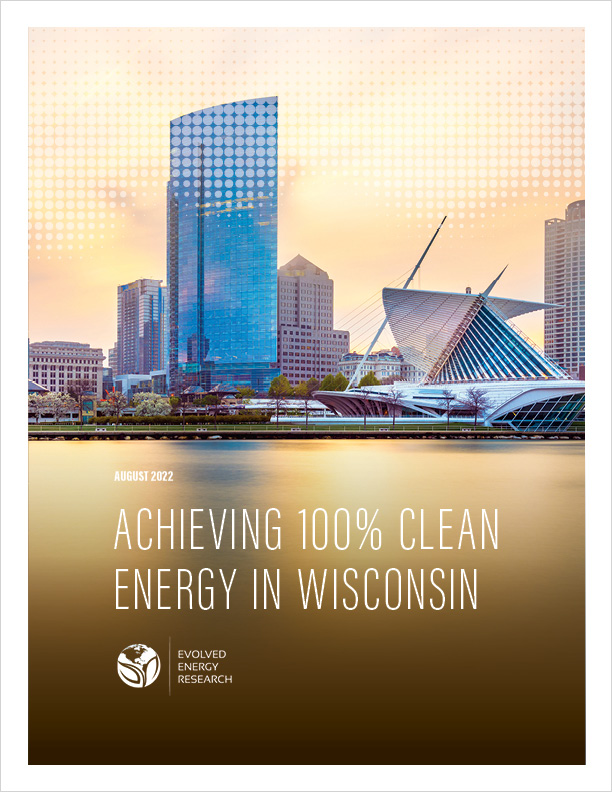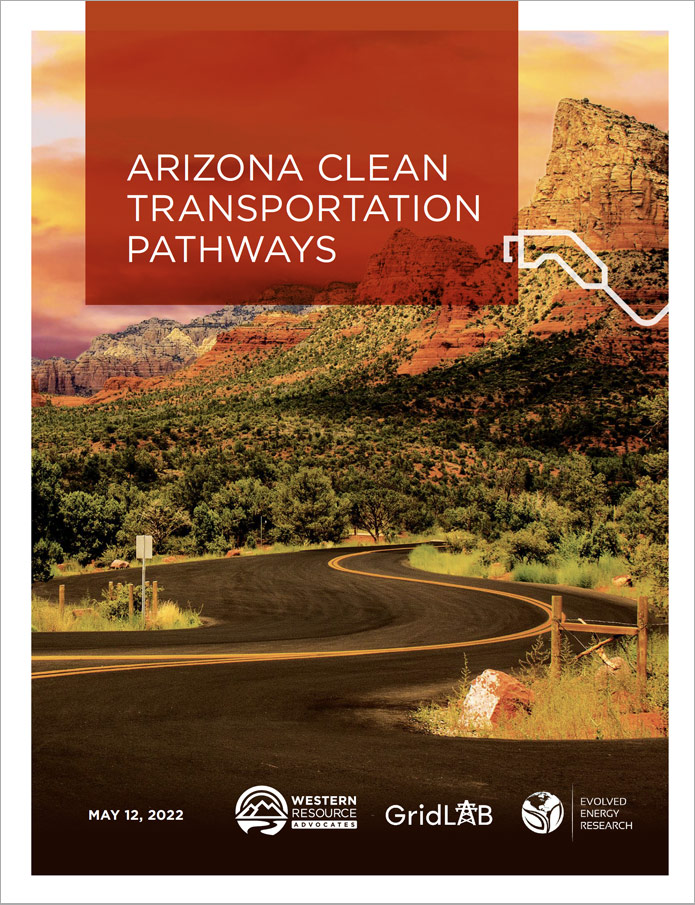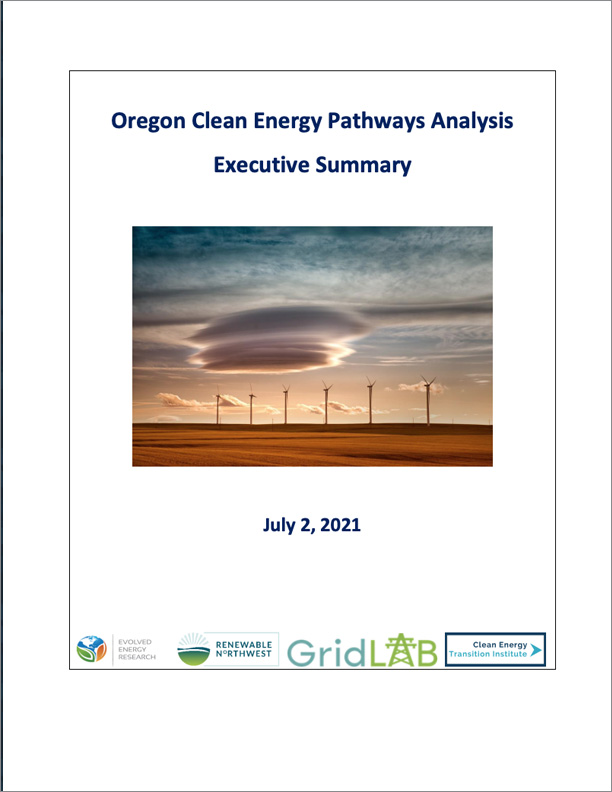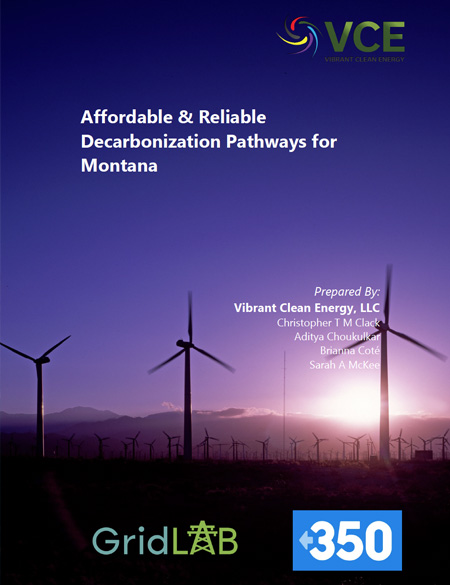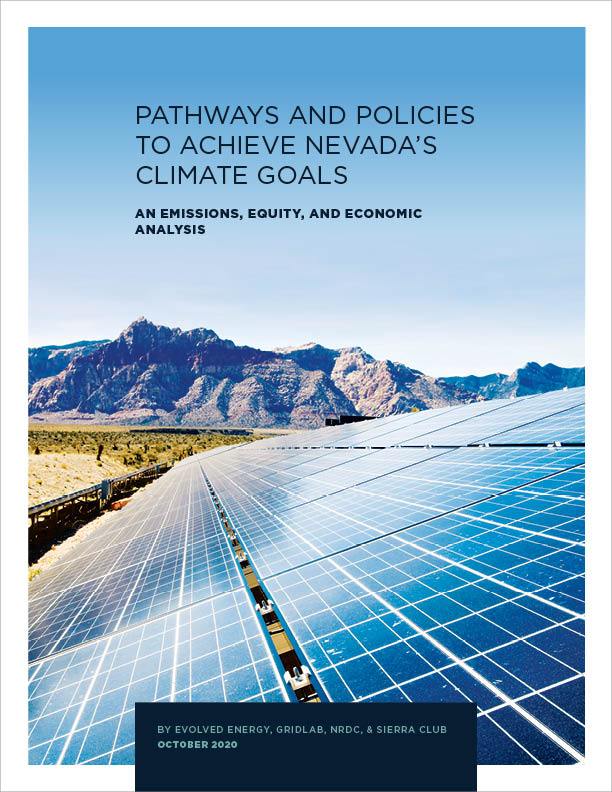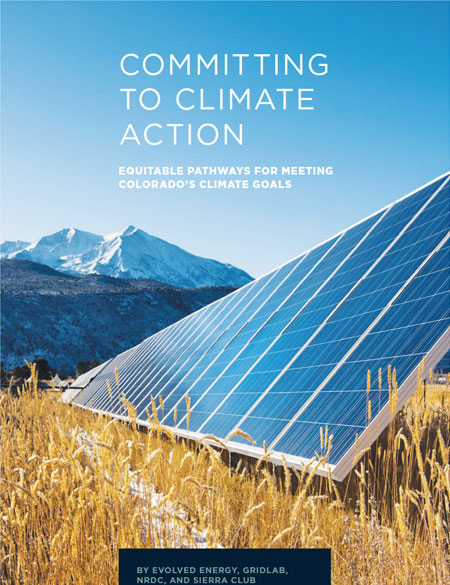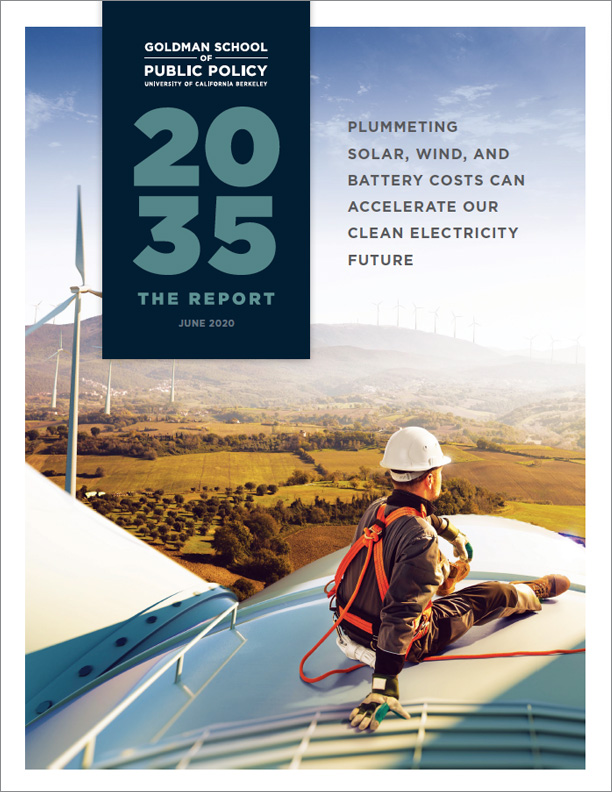The economic impacts of decarbonization in Wisconsin
The state of Wisconsin is currently heavily reliant on fossil fuels for its energy; the U.S. Energy Information Administration estimates that in 2020, 42% of net electricity generation in state was from coal-fired power plants, and a further 34% was...
Evolved Energy Research 100 percent in Wisconsin
This study is a collaboration between Evolved Energy Research, RENEW Wisconsin, Clean Wisconsin, and GridLab (the Project Team) identifying strategies to achieve 100% clean electricity in Wisconsin by 2050. The state’s clean electricity target was established by Governor Evers’ Executive...
Arizona Transportation Study Technical Appendix
As of early 2022, Arizona still lacks significant binding clean energy goals or transportation decarbonization measures. Western Resource Advocates (WRA) commissioned GridLab and Evolved Energy Research for a joint study to investigate the impacts of transportation electrification in Arizona. This...
Arizona Clean Transportation Pathways Brief
As of early 2022, Arizona still lacks significant binding clean energy goals or transportation decarbonization measures. Western Resource Advocates (WRA) commissioned GridLab and Evolved Energy Research for a joint study to investigate the impacts of transportation electrification in Arizona. This...
Arizona Clean Transportation Pathways
In the summer of 2021, Western Resource Advocates (WRA) commissioned GridLab and Evolved Energy Research for a joint study to investigate the role of transportation electrification in economy-wide decarbonization for the state of Arizona. As of early 2022, Arizona still...
Oregon Clean Energy Pathways Analysis Executive Summary
In late December 2020, as Washington State was finalizing its 2021 State Energy Strategy based on technical analysis by the Clean Energy Transition Institute and decarbonization pathways modeling by Evolved Energy Research, Oregon advocates were considering the value of a...
Affordable & reliable decarbonization pathways for Montana
In order to investigate outcomes from the various pathways Montana could follow as it evolves it energy system, GridLab and 350.org commissioned Vibrant Clean Energy, LLC (VCE®) to model the Montana energy system using its flagship energy system modeling software...
Pathways and policies to achieve Nevada’s climate goals
The climate crisis is here. Without swift action, it will further threaten the health and livelihoods of Nevadans. Fortunately, Nevada’s leaders have recognized the urgency, passing a 50 percent renewable portfolio standard in 2019 and setting statewide greenhouse gas (GHG)...
Western states deep decarbonization
The Colorado Legislature passed a law (HB 19-1261) in 2019 to reduce greenhouse gas (GHG) pollution 26 percent by 2025 and 50 percent by 2030 compared to 2005 levels of emissions. The state is not currently on track to meet...
2035 The Report
Global carbon emissions must be halved by 2030 to limit warming to 1.5°C and avoid catastrophic climate impacts. Most existing studies, however, examine 2050 as the year that deep decarbonization of electric power systems can be achieved

